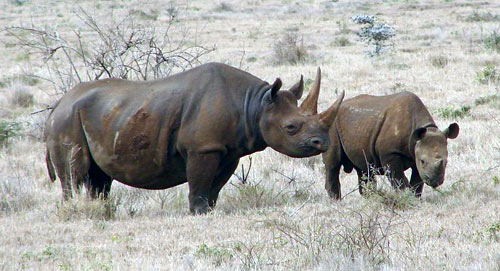Readers Question: The number of Rhinos that are killed every year for their horns is increasing. They may soon be extinct. What would an economist do about this?

An economist would say that if Rhinos are at risk of becoming extinct it would impose a significant social cost on society. Therefore the economic incentives should be changed so that there is a much greater cost to being involved in the Rhino trade. If necessary funds should be raised from a wider range of countries who indirectly are involved in the Rhino trade (e.g. Western economies giving financial aid to African countries for the policing of the trade).
To stop the killing of Rhinos, an economist may suggest some of the following.
Increase the cost of being involved in the Rhino trade. If people are killing Rhinos for their horns, it must be because they believe the economic benefits outweigh the potential costs. An economist would say we have to change this incentives so that anyone would be very reluctant to get involved.
This could involve Increasing the penalty for those involved in Rhino trade. Stiffer sentences for those caught, and stiffer penalties for those found to have bought Rhino horns. Stiffer penalties could involve fines and jail sentences. The advantage of financial penalties is that it could be used to finance the regulation of the criminal activity.
– However, stiffer sentences may not be a deterrent. Poachers may be very poor and a higher penalty may not make much difference to their decision whether to take part or not. Also, penalties are no deterrent unless there is effective policing.
Make Funds available for more policing. A greater presence of policing and game-wardens may deter criminals.
– But, it can be very difficult to police the huge areas where Rhinos live.
It is possible that raising awareness of issue may help deter the trade. Advertising problems of Rhinos going extinct may help change consumer behaviour.
It may be hard to put economic value on Rhinos, but there is room for evaluating non-monetary benefits and costs. An economist would try to decide how much value society should put on the protection of wildlife compared to the opportunity cost of less resources for other projects (such as health care / education)
Another issue is that horns are often sold in the West, but it is poor African countries who are responsible for policing. A low-income African country may be reluctant to use limited public finances to protect Rhinos when they have more pressing problems.
An economist would try to overcome this market failure, by suggesting more affluent nations pay for the policing of wildlife in Africa. This would require global co-operation between big trading blocks like the EU and US. However, as a % of their overall budget, it would be quite small.
